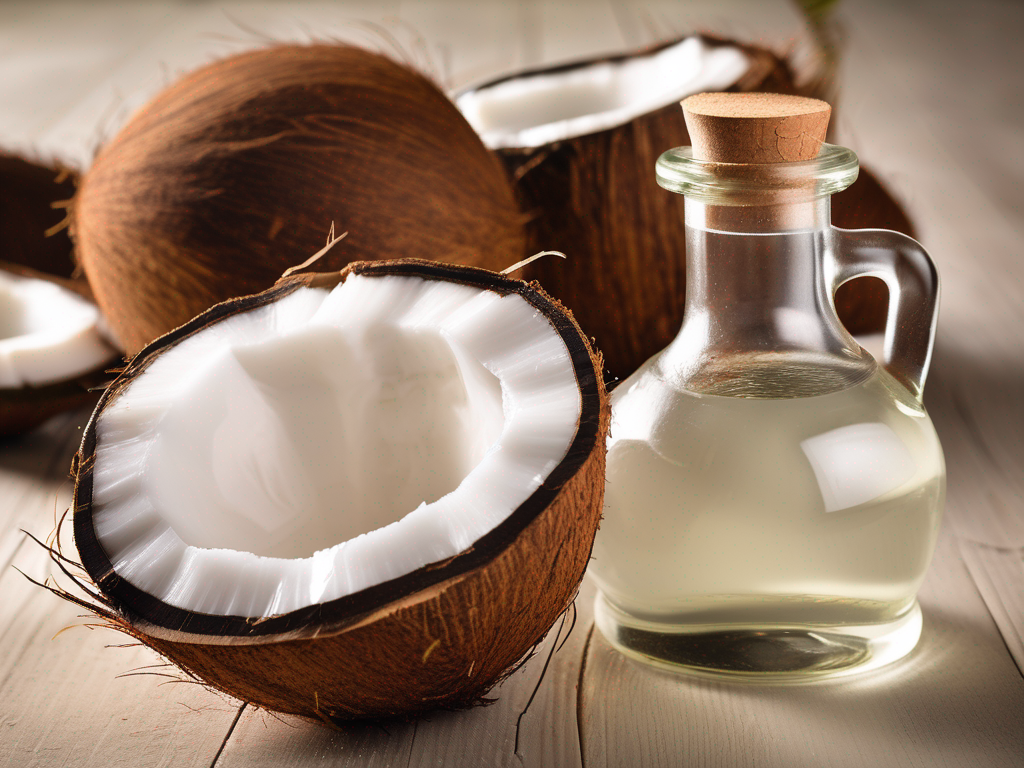
Does Coconut Oil Have an Expiration Date?
Does Coconut Oil Have an Expiration Date?
Coconut oil is a versatile and popular ingredient in cooking, baking, and beauty products. Many people wonder if coconut oil goes bad and if it has an expiration date. In this blog post, we will explore the shelf life of coconut oil, how to store it properly, and tips for ensuring its quality and safety. (Coconut oil)
Food Storage Essentials
Products that help you store and preserve your food better
Disclosure: As an Amazon Associate, we earn from qualifying purchases. This helps support our site and allows us to continue providing free food safety information.
Understanding Coconut Oil Shelf Life
Coconut oil is known for its long shelf life due to its high saturated fat content, which helps prevent oxidation and rancidity. However, like all oils, coconut oil can go bad over time. Here are some key points to keep in mind:
Factors Affecting Coconut Oil Shelf Life
Several factors can affect the shelf life of coconut oil:
- Exposure to Light: Direct sunlight can degrade the quality of coconut oil.
- Temperature: Fluctuations in temperature can cause coconut oil to solidify or become rancid.
- Air Exposure: Oxygen can lead to oxidation and spoilage of coconut oil.
- Contamination: Improper handling or storage can introduce contaminants that spoil the oil.
Does Coconut Oil Have an Expiration Date?
Best-Before Date
Most commercially available coconut oils come with a "best before" date, which indicates the optimal quality and flavor of the oil. While the oil may still be safe to consume after this date, its quality may deteriorate.
Storage Conditions
Proper storage is key to extending the shelf life of coconut oil:
- Store coconut oil in a cool, dark place away from heat sources and sunlight.
- Keep the oil tightly sealed to prevent air exposure.
- Avoid storing coconut oil near strong odors or chemicals that can affect its flavor.
Signs of Spoiled Coconut Oil
To determine if coconut oil has gone bad, look for these signs:
- Off Odor: Rancid coconut oil may have a foul or sour smell.
- Off Flavor: Spoiled coconut oil may taste bitter or rancid.
- Change in Color: Fresh coconut oil is clear or slightly white; discoloration may indicate spoilage.
- Mold Growth: Visible mold or unusual growth indicates spoilage.
Tips for Storing Coconut Oil
Recommended Food Storage Products
Keep your food fresh and organized with these storage solutions
Disclosure: As an Amazon Associate, we earn from qualifying purchases. This helps support our site and allows us to continue providing free food safety information.
To maximize the shelf life of coconut oil, follow these tips:
- Use Airtight Containers: Transfer coconut oil to a clean, airtight container for storage.
- Avoid Heat Exposure: Keep coconut oil away from direct sunlight and heat sources.
- Refrigeration: While not necessary, refrigerating coconut oil can extend its shelf life.
- Avoid Contamination: Use clean utensils and avoid introducing moisture or contaminants into the oil.
Conclusion
While coconut oil has a long shelf life, proper storage and handling are essential to maintaining its quality and safety. By following the tips outlined in this blog post, you can ensure that your coconut oil remains fresh and flavorful for an extended period. Remember to check for signs of spoilage and use your senses to determine if the oil is still suitable for consumption.
For more information on [coconut oil](/food/coconut oil) and other food safety tips, stay tuned for our upcoming blog posts. (Coconut oil)
Related Posts
Here are some other articles you might find helpful:
Food Storage Essentials We Love
Products that help you store and preserve your food better
Disclosure: As an Amazon Associate, we earn from qualifying purchases. This helps support our site and allows us to continue providing free food safety information.
Scan your food directly and get instant safety info using our AI-powered camera feature.




